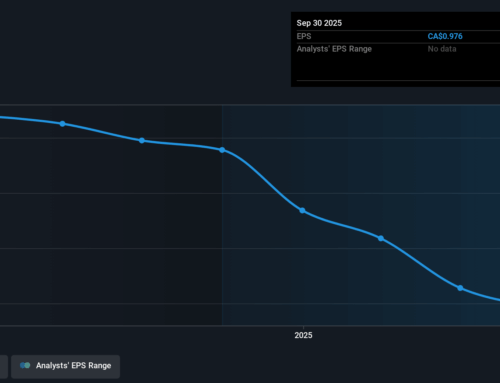Hawaii Moves to Legalize Medical Cannabis for Any Condition
April 9, 2025
Although an adult-use cannabis legalization bill crumbled earlier this year in Hawaii, state lawmakers are now pushing legislation that would expand access to medical cannabis to just about anyone.
The Senate adopted an amended version of House Bill 302 in a 24-1 vote on April 8. Sponsored by Rep. Gregg Takayama, D-Pearl City, the legislation aims to amend Hawaii’s definition of a debilitating medical condition to mean any condition determined as “appropriate” by a certifying physician or advanced practice registered nurse (APRN) for the use of medical cannabis.
In other words, health care providers could recommend medical cannabis for any condition they see fit—from minor headaches to trouble sleeping—instead of being limited to the state’s current list of qualifying conditions.
The Hawaii Department of Health (DOH) provided testimony on April 1, indicating that while its officials support allowing health care providers to use their professional judgment in diagnosing and treating patients, the department was concerned with opening the scope of the state’s medical cannabis conditions.
“There is limited scientific evidence supporting the use of cannabis for conditions beyond those currently listed in statute,” DOH officials wrote. “The department is particularly concerned about potential risks to patient safety, including adverse drug interactions between cannabis and a patient’s existing treatment plan.”
Furthermore, the DOH opposed allowing a patient’s non-primary care doctors or APRNs to provide recommendations for medical cannabis.
In addition, the legislation would amend state law to clarify that a medical cannabis patient can establish a bona fide relationship with a health care provider without an initial in-person consultation.
In other words, the bona fide relationship necessary for a medical cannabis recommendation could be established via telehealth; however, medical cannabis telehealth certifications would be required to come from within the state.
“The Legislature finds that access for qualifying patients and primary caregivers to medical cannabis and particularly licensed medical cannabis dispensaries remains challenging due to limited access to medical providers, delays in obtaining allowed access to enter and purchase medical cannabis, and the availability of cannabis through a thriving illicit market,” according to the bill.
While the number of registered medical cannabis patients peaked at 35,444 cardholders in August 2021, that number decreased by 15% to 30,035 cardholders by November 2024, according to H.B. 302.
“This appears to indicate that residents are shifting away from licensed medical cannabis dispensaries and instead are obtaining their medical cannabis from elsewhere due to administrative barriers, delays in registering, and the ease and lower costs in obtaining cannabis elsewhere,” according to the bill.
Another provision included in the bill would make it a felony to operate a dispensary without a license and a misdemeanor to advertise unregulated cannabis.
H.B. 302 also would permit the DOH to issue additional medical cannabis cultivation licenses and define canopy sizes or plant counts for indoor and outdoor growers.
The Hawai‘i Cannabis Industry Association (HICIA), which represents the majority of the state’s licensed dispensaries, provided written testimony to support easing access for medical cannabis patients but oppose the addition of cultivation licenses, suggesting that the current marketplace is already “extremely limited and constrained.”
“Licensees already have production centers that are underutilized and not growing at full capacity just to serve their own patient customer base,” HICIA officials wrote. “Adding additional products into this already tight legal system through cultivator licensees will simply flood the market with more product. This product will end up somewhere, and if not in licensed facilities, more likely in the illicit market.”
Other provisions included in the bill would allow licensed dispensaries to sell non-cannabis products in their waiting areas—such as federally legal hemp and certain paraphernalia—and clarify the process for dispensary-to-dispensary sales to establish greater efficiencies.
Senate lawmakers did not discuss the legislation on the chamber’s floor before Tuesday’s vote. Sen. Brenton Awa, R-Kaneohe, the minority party’s leader, cast the lone vote in opposition.
Should the House concur with the Senate’s amendments, Democratic Gov. Josh Green—who said he supported adult-use legalization in the Aloha State during his 2023 campaign trail—would likely sign the bill.
When Hawaii House members killed an adult-use legalization bill in April 2024, Green told Hawaii News Nowthat he had a possible solution to find a middle ground between the majority of Hawaiians who support legalization and the states’ law enforcement agencies that continue to offer concerns about public safety.
“I think probably there is a place to find a more happy medium, and that is to expand people’s capacity to get medical marijuana under any circumstance they deem necessary with their physician,” he said.
Green pointed to Hawaii’s laws supporting women’s rights to make their own decisions about their bodies with their health care providers and to terminal patients’ rights to make decisions with their health care providers regarding death with dignity over suffering in pain in the final six months of their lives.
“I think we can apply that same principle to the medical use of marijuana, which would significantly expand people’s legal use of marijuana but would still leave regulation in place regarding children, which has been one of the concerns,” the governor said a year ago.
Now in the final stages before heading off to Green’s desk, H.B. 302’s adoption in the Senate comes two months after House lawmakers killed an adult-use legalization bill for the second straight year. Rep. Chris Todd, D-Hilo, suggested it didn’t have enough support to pass and introduced a rare motion to table the legislation until next year.
Although Hawaii was one of the most progressive states in the nation when it became the first to legalize medical cannabis via the legislative process in 2000, it has since taken one of the most conservative approaches to adult-use reform.
Search
RECENT PRESS RELEASES
Related Post



